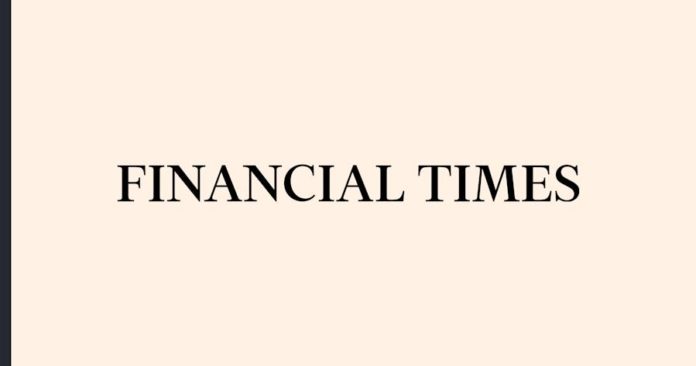The euro struck a nearly two-year low this week as the European Central Bank stuck with its plans to gradually reduce economic stimulus measures as it balances record inflation with the economic impact of the war in Ukraine.
The common currency fell below $1.08 for the first time since May 2020 following the central bank’s monetary policy meeting on Thursday, and remained lodged near that level on Friday. The euro has shed almost 5 per cent against the dollar so far this year, adding to a 6.9 per cent fall in 2021.
The ECB opted to leave interest rates unchanged as expected after its latest policy meeting but president Christine Lagarde noted that “downside risks to the growth outlook have increased substantially as a result of the war in Ukraine”. Inflation will remain high over the coming months, mainly because of rising energy costs, she added.
Carsten Brzeski, head of macro for ING Research, attributed the drop in the currency to investors getting “ahead of themselves” in recent weeks, expecting eight interest rate rises by the end of 2023.
“Lagarde’s comments . . . confirmed the rather gradual process of normalisation,” he said.
The central bank said economic data released since its last meeting “reinforce its expectation” that its asset purchase programme (APP) should end in the third quarter of the year.
Despite that, Frederik Ducrozet, strategist at Pictet Wealth Management, said the currency’s decline was down to the lack of a “strong hint or firm commitment” from Lagarde that the APP would end in June. “It’s a reaction to the positioning of markets ahead of the conference,” he said.
Inflation in the euro area has sailed higher over the past year, with price growth hitting 7.5 per cent last month. Both the US Federal Reserve and the Bank of England have already begun raising interest rates in an attempt to damp intense price rises, but the ECB has indicated that it must first cease its bond-buying before increasing borrowing costs.
ECB policymakers also need to contend with the impact of the war in Ukraine, which is expected to take an outsized toll on Europe’s economy.
“The supply shock implied by the war implies a difficult trade-off for the governing council, given weaker growth and higher inflation,” Goldman Sachs analysts noted. The investment bank expects the ECB to raise rates in September but said a July increase would not be out of the question if inflation pressures picked up.
The ECB’s relatively dovish tilt failed to stem selling in the bloc’s bond markets. The German 10-year Bund yield increased 0.13 percentage points this week to 0.84 per cent, having started the year at minus 0.18 per cent.
US government bonds also took a hit this week, with the 10-year yield rising 0.12 percentage points to 2.83 per cent.
Unexpectedly weak core US inflation figures released earlier this week had led investors to temper their expectations about how aggressively the Federal Reserve would raise interest rates, prompting a rally in bond prices. However, in an interview on Thursday John Williams, president of the New York branch of the Federal Reserve, stressed the need to move interest rates “back to more neutral levels”.
Most European debt and equity markets were closed on Friday for a public holiday. Wall Street markets were also closed.
America’s benchmark S&P 500 stock index fell 2.1 per cent for the week, with the Nasdaq Composite off 2.6 per cent. Europe’s Stoxx 600 was little changed while MSCI’s broad measure of stocks in the Asia-Pacific region fell 1.4 per cent.
Credit: Source link















